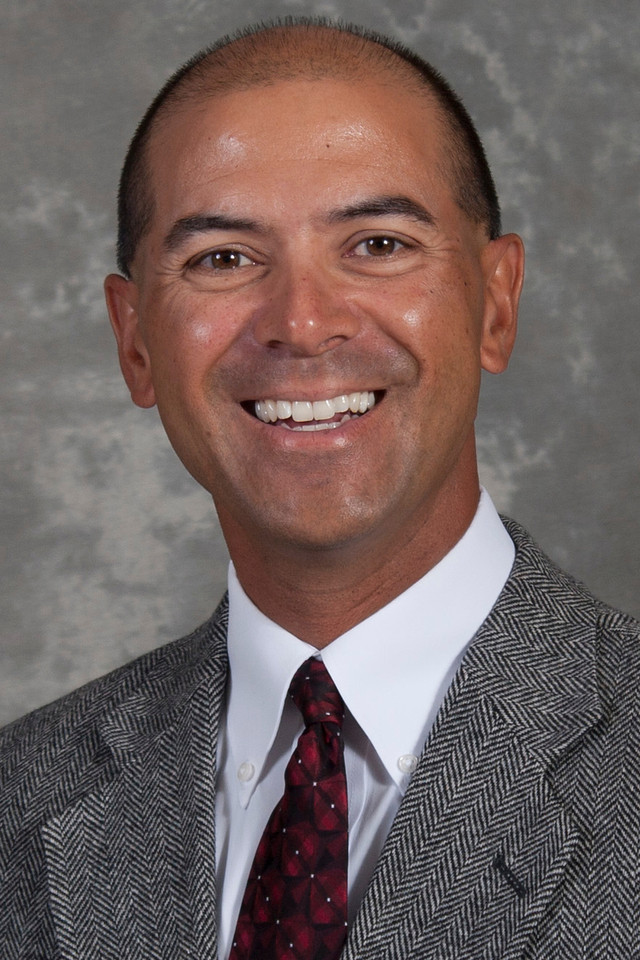Getting to Know: Mathematical Sciences

EDITOR’S NOTE: College Relations is publishing a monthly series of news articles, features and Q&A interviews highlighting various departments on campus in an effort to assist the faculty and staff in gaining an increased awareness about and understanding of each other’s roles and responsibilities.
The January Q&A is with Dr. Rob Stack, chair of the Mathematical Sciences department.
Q: What are your duties as department chair?
One of the duties as department chair includes creating the teaching schedules for the following summer and next academic year. Communicating with the faculty within the department as well as any adjunct faculty with regard to their teaching preferences help to make this process go more smoothly. Another duty is to work with the Records Office on transferability of courses along with degree audits. Assisting the Visit Office with campus visits by prospective mathematics students is another aspect of the chair’s position. Completing assessment reports as well as updating course rotations and program templates is also done.
Q: What has changed in the Math department since you started at CSC?
The most significant change in the Math department has been the migration of all courses in the math major to online status. The number of undergraduate majors has been fairly constant, whereas, the number of graduate students in our programs has been increasing. The introduction of the Applied Statistics Minor about 10 years ago has provided an option for those students needing a minor for their program.
Q: What do you like best about teaching at Chadron State?
The best thing about teaching at Chadron State are the students attending and the people working at the college. Every day there is something different. The students bring fresh perspectives to the classroom, while the students who are online bring their experiences. Every person who works on campus is always willing to help out when asked.
Q: What are some of the unique aspects of the Math program?
The online aspect of the Math program is extremely unique. There are very few online math programs, and, when students are asked about how they came across our program, they always say that because of the online availability and the affordable cost, choosing Chadron State was an easy choice.
Q: What career paths do graduates of the Math program generally pursue?
Teaching is one of the paths for graduates of the Math program (both undergraduate – teaching in elementary/middle/high schools, and graduate – teaching at 2-year colleges). Other paths are math-related occupations such as statistics for government agencies, statistics/math for banks, actuarial sciences for insurance companies, and analyses for large companies. Approximately 30 graduates over the past 12 years have gone on to graduate school to obtain Masters/Doctorates degrees. Most of these graduate degrees are in statistics.
Q: What student opportunities are offered in the Math department?
Each fall, Dr. Wentworth invites her Math for the Elementary Teacher and Secondary Math Methods classes to the NATM (Nebraska Association of Teachers of Mathematics) conferences. Likewise, students have been able to attend regional and national conferences of the NCTM (National Council of Teachers of Mathematics) and the MAA (Mathematical Association of America).
Q: What types of technology does the Math department use in its curriculum?
The technology used in the curriculum of the Math department is mostly related to calculators. We use Texas Instruments graphing calculators (TI-83, TI-83+, TI-84, TI-84+) in several of the majors classes. We also use mathematical programming using Mathematica or MatLab. In the online classes, we use the SmartBoards as well as the CSC Online learning platform. MathType (symbolic editing software) is used for several classes. In some of the statistics classes, an online statistical package is used (Statcrunch).
Q: What advice would you share with students interested in a career in Math?
Math is something that is used every day. From setting a schedule for the day, to budgeting groceries for the week, to running errands, math provides these thought processes. Additionally, there are several sources that indicate that math-related occupations rank in the top 10 for job security, job satisfaction, and job salary.
Q: Is there anything else you’d like to add?
Math is called the “Queen of the Sciences” and is often referred to as being a language of its own. Being as proficient in math as one can be will undoubtedly be of great benefit.
Category: Campus News, Mathematical Sciences
